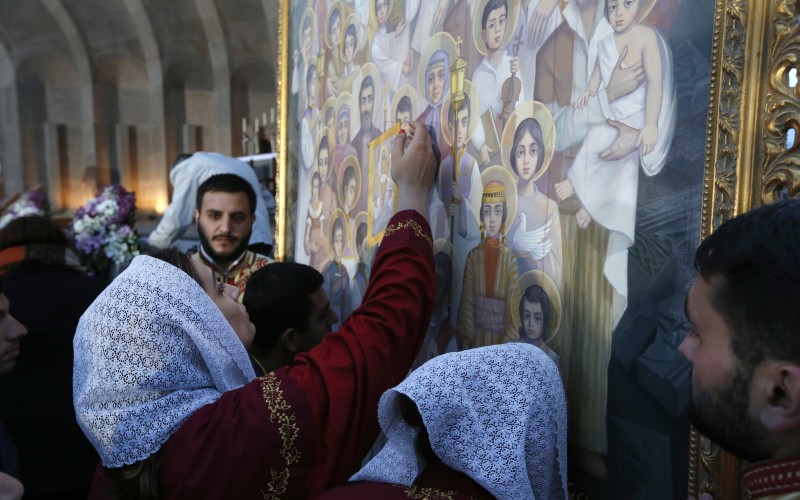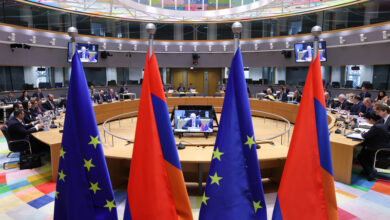In a world still threatened by genocide, we must heed the message of an Armenian saint

St Gregory of Narek, a Doctor of the Church, urges us to recognise the evil within us and the world
By Vahan Dilanyan
The Catholic Herald
This Sunday Armenians and people of good will around the world will commemorate the victims of the Armenian Genocide.
A century ago millions of men, women and children – including Assyrians and Greeks – were brutally tortured and exterminated upon the direct order and plan of the Ottoman Turkish government, thereby emptying the region of its indigenous populations and deliberately destroying millennia-old Christian heritage.
Armenians were martyred also because of their Christian faith and as recently as last year the Armenian Apostolic Church canonised all the victims of the genocide as saints.
It is tragic that the cycle of genocide continues to this day in various parts of the world. Part of the reason behind it is the impunity of the past crimes and the unwillingness of the international community to undertake meaningful measure to stop it. Only by fully facing the tragedies of the past and dealing with them in a truthful and just manner can the humanity move forward.
These ideas are enshrined in the work of a 10th-century Armenian monk, St Gregory of Narek, whom Pope Francis proclaimed a Doctor of the Church for his invaluable contributions towards the Christian theology and community at-large.
St Gregory of Narek is best-known for his work the Book of Lamentations (also called Book of Prayers), which outlines profound ideas about the purification and sanctification of humanity. The book is a monologue structured as a prayer to God “from the depths of the heart” in which St Gregory ascribes to himself all possible sins, exposing himself and confessing to God.
The saint suggests a way of human perfection through repenting to God. This was a revolutionary idea aimed at dispelling the ignorance of the Middle Ages. Long before Martin Luther, St Gregory advocated direct communication with God. Centuries later this idea was to become the basis of Reformation.
It is worth mentioning that there is not a single mention of “Armenian” or “Armenia” throughout the entire text, which proves the work’s universal nature.
St Gregory’s ideas have a crucial meaning in the modern world full of violence and intolerance. While losing spiritual and moral values in the euphoria of development of civilisation, humanity’s image of divinity has been degraded. St Gregory provides for a path towards salvation through repentance.
The idea of repentance is of particular importance in the context of the recognition of Armenian Genocide, since the 101st anniversary of the genocide serves as a new milestone to dispel the gloom and struggle against the denial of the crime by Turkey in the 21st century. As Pope Francis said, “concealing or denying evil is like allowing a wound to keep bleeding without bandaging it.”
The denial and impunity of a crime enable its repetition in the future, as proven by the cases of the Holocaust, Cambodia, Rwanda, Darfur, as well as the ongoing genocide against Yazidis, Christians and other minorities in the Middle East at the hands of ISIS.
This cycle will continue for as long as the world does not repent of the sins that have remained unacknowledged to this day. Only with the proper recognition and true justice can peace be established in the world. St Gregory’s ideas are as relevant today as they were in centuries past.
Vahan Dilanyan is the Assistant to the Prime Minister of the Republic of Armenia. He previously served as the Adviser to the Minister of Foreign Affairs of the Republic of Nagorno Karabakh. He has a PhD in Political Science








